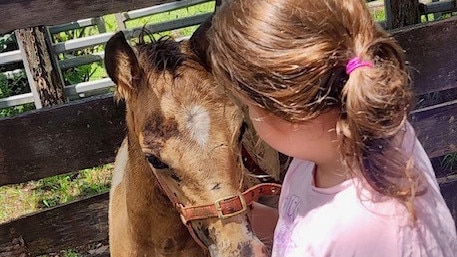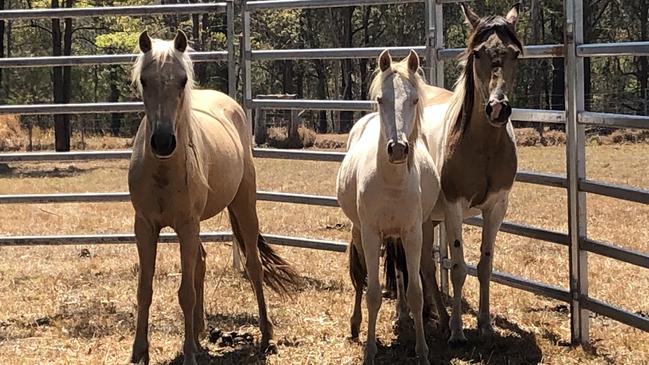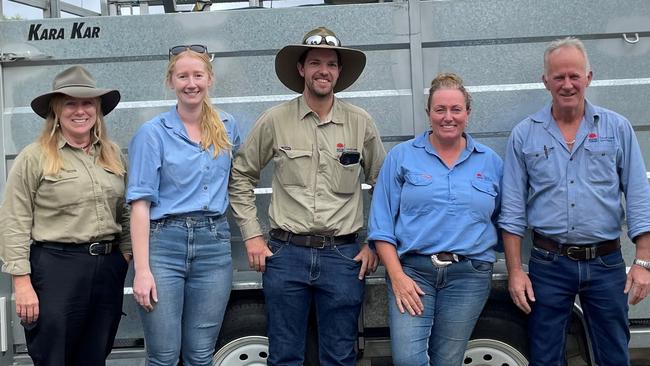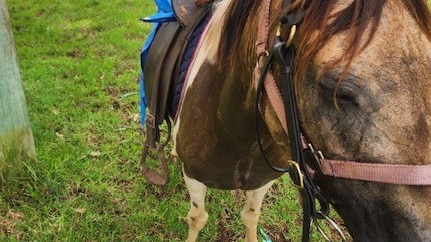Local Land Services North Coast working with landowners to rehome wild horses
Most captured wild horses do not get named, but pregnant Gypsy was one of the lucky ones. She’s now with a family, who’ve named her foal Pebbles, as part of a unique rehoming program.

Regional News
Don't miss out on the headlines from Regional News. Followed categories will be added to My News.
Most captured wild horses do not get named, but pregnant mare Gypsy was one of the lucky ones – she has been rehomed with a family who have now named her foal Pebbles.
The pair are now enjoying life as domesticated horses after Gypsy was trapped by Local Land Services North Coast and Pebbles was born in captivity.

Gypsy was one of four wild horses recently captured in the Pillar Valley on the Mid-North Coast as part of a rehoming program involving 66 horses from the area.
Wild horses are classed as biosecurity pests in the wild.
Gypsy, a painted mare, was just one of 165 horses captured in the wider area between Brooms Head to Corindi Beach since the program began in 2021.
Of the 165 captured horses, 151 have been rehomed, while 14 had to be euthanased for health or behavioural reasons.

Tiffany Felton, Local Land Service North Coast’s senior biosecurity officer, said landholders have options to meet their biosecurity obligations to help control wild horses.
“Landholders can choose to allow Local Land Services to remove wild horses, remove them themselves or fence them in and domesticate them,” she said.
Most landholders have chosen to rehome the horses, rather than euthanasing or shooting them.
Landholders work with Land Services to capture and trap wild horses before they are screened for rehoming through specialist groups and private applicants.
“Some brumby clinics have taken them on through to farmers, stock holders and landholders that want to give these horses a chance at a home,” Ms Felton said.

The program does not involve breaking or training in handling, so only people experienced with horses have been encouraged to take part.
“They’re not just something you bought for the kids and that you can let out in a paddock,” Ms Felton said.
“They don’t have fence respect yet, so that needs to be taught.
“You have to have resources such as yards that will be able to contain them while you decide to break them in, or handle to the point of health treatment if needed, or maybe use them as grass seeders.”
The program aims to help landholders by prioritising areas that wild horses access roadways, such as the Halfway Creek service station on the Pacific Highway, where 80 horses were removed in 2022 and 2023.
Got a news tip? Email: toni.moon@news.com.au




